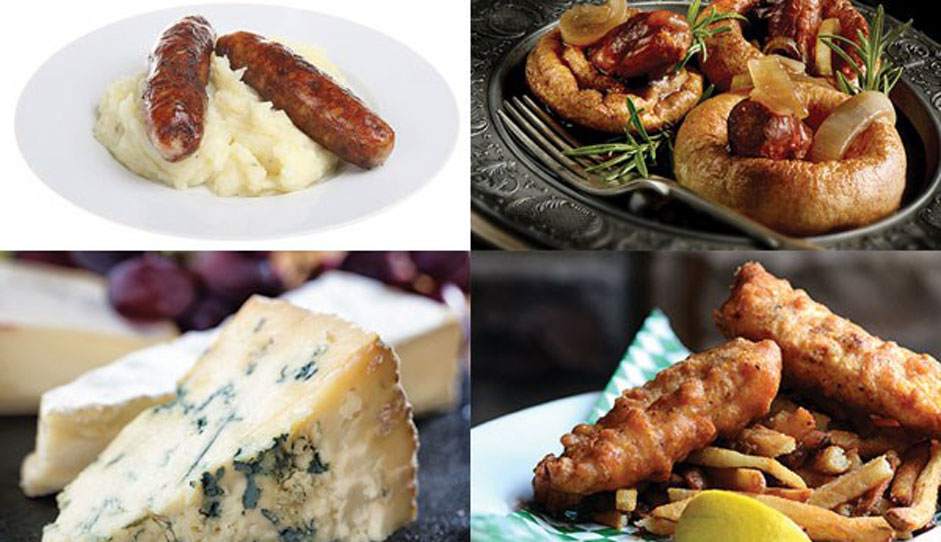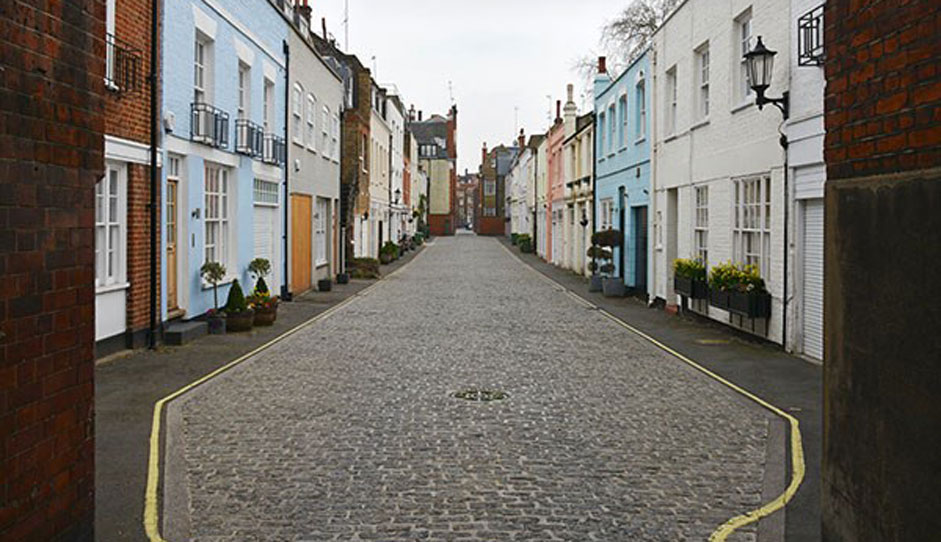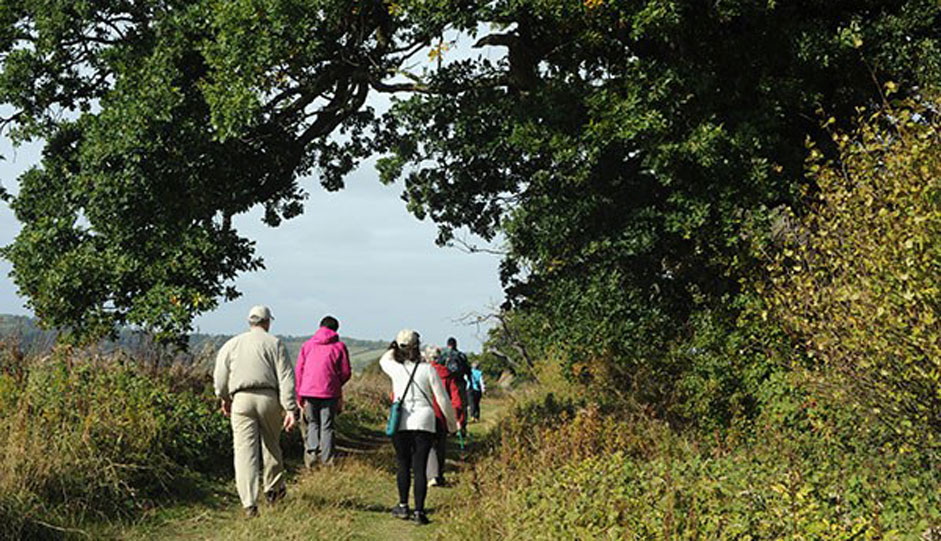11 Reasons to Love England: Confessions of an Anglophile
I admit it. I’m a head-over-heels Anglophile. I love England, I love the English and I even love English food. (Well, most English food.)
I come by this bias honestly. My father was in the U.S. Foreign Service, and my family had the good fortune to live in London not once, but twice, before I was out of the nest. I first moved there in 1966, lived there again in the 70s, and have visited every decade since then. In 2015 my wife and I took our teenaged sons for their first visit to England so they can become Anglophiles, too.

See Road Scholar’s collection of educational travel adventures to England →
1. English People are funny, eccentric and generally awesome. I got my first job in London when I was 12, delivering fruits and vegetables on a big black bicycle in the Bayswater area just north of Hyde Park every Saturday morning. (One of my customers was the Beatles’ producer George Martin.) Tropical Fruits in Connaught Street where I worked was staffed by a colorful, Dickensian cast of characters, from the shop owners, Monte and Stella Newman, and the buyer “Pip” — I don’t remember his real name — to a cast of clerks and delivery boys like me. Practical jokes were a hazing ritual. Shortly after I started working there I was sent across the street to the chemist for a tin of elbow grease, and every newcomer had the rim of his tea cup surreptitiously smeared with the juice of the hottest red pepper in the shop. One Saturday I rose at 3 a.m. and went with Pip on a buying run to the old Covent Garden produce market. I didn’t see Eliza Doolittle, but it was a scene right out of My Fair Lady. It was the best job I’ve ever had. (Well, second best.)
2. The English Language is sublime. I suppose linguistic chauvinism is pretty common, but there is some objective evidence that English contains more subtleties of expression than other languages. Because English is a mongrel language with Germanic, Romance and other roots and influences, it has an enormous number of synonyms and close synonyms, and perhaps more words than any other language. For most languages the very idea of a thesaurus wouldn’t make any sense; for writers of English it’s an essential tool.

3. English Food is, for the most part, unjustly maligned. Bangers and mash, toad in a hole, plum pudding, Stilton cheese, a big rare slab of roast beef with Yorkshire pudding, fish and chips … I could go on. Isn’t your mouth watering?
4. English Pop Music is fab, the toppermost of the poppermost. When I first lived in England Swinging London was at its pinnacle, The Beatles were No. 1 in my book and tuning into “Top of the Pops” every week to learn what song was No. 1 was my weekly ritual. (“Yes, it’s Number 1, it’s Top of the Pops!”) Because people were relatively poor and albums relatively new, people of all ages bought 45s, and the English charts had a democratic spirit where rockers, middle-of-the-road crooners and novelty coexisted. The Top 50 Chart for January 26th, 1967 amazingly included songs by Cat Stevens, Tom Jones, The Who, The Rolling Stones, Jimi Hendrix (American, but he had an English band and had become a sort of honorary Brit), Cream, The Troggs, Donovan, The Kinks, The Easybeats, The Spencer Davis Group, Engelbert Humperdinck, and The Small Faces. (The novelty entry that week was the best-forgotten “Snoopy Versus the Red Baron” by The Royal Guardsmen.) I still listen to this stuff 50 years on, and I defy you to name a better time for pop music.
5. English History and Royalty. History is about more than great men and women, but English kings, queens, princes and princesses come close to proving that this might not be so. Henry V rallying his “band of brothers” at Agincourt, the probable murder of the two princes in the Tower by their uncle, Richard, Elizabeth I repelling the Spanish Armada, mad George III losing his American colonies, Edward VIII abdicating his throne for “the woman I love,” and, of course, the fairytale wedding but eventual tragic death of Princess Diana — how can you resist these stories that are so human, but somehow more so?
6. Soccer — fluid, graceful, improvisational, spatial, tense — is the greatest sport there is and, if not invented by, its rules were certainly standardized by the English; they may not be the greatest soccer practitioners in the world, but they have had their moments, including the World Cup victory they grabbed from West Germany within a few weeks after I moved there in 1966. I became a Chelsea fan and would stand in the terrace behind the goal shouting, “Osgood is good!” with the other fans or, when Chelsea was away, watch Queens Park Rangers play at Loftus Road or, once, venture to the East End to see the Hammers of West Ham. There is nothing as rousing as hearing Liverpool supporters sing “You’ll Never Walk Alone.”

7. London never, ever runs out of surprises and delights. Archaeological evidence indicates a timber structure 6,500 years old at this natural crossing point of the Thames River, and during Roman times “Londinium” became a major settlement. In the 20 centuries since, commerce, politics, fire, plague, and war have driven constant change, and change continues today. It’s a great walking city, and there are always new — or newly transformed —neighborhoods to discover. My favorite spot in London is the Golden Gallery at the top of the Dome of St. Paul’s Cathedral. To get there you have to climb 528 steps, with stops at the Whispering Gallery and the Stone Gallery on the way, but the effort is worth it. You’re rewarded with a 360-degree view of London, including the new skyscrapers to the east like the one at 30 St. Mary Axe affectionately called “The Gherkin.” My second-favorite spot in London — well, spots really — is any of the mews that run between larger streets throughout the West End. These wide, cobblestoned alleys once housed stables and carriages, and now are filled with funky houses, art galleries, pubs and more.
8. English Weather. Say what? My wife, born in Hawaii, thinks I’m crazy, too. But when I was in middle school at the American School in London, I went to school in the drizzly dark and came home in the drizzly dark, and I still think there’s something special about the way a damp late London afternoon can wrap its arms around you. Still not convinced? Make yourself a cup of tea and think it over.

9. Country Walks. There are more than 140,000 miles of public footpaths in England and Wales. These ancient rights of way cross private land and were originally the way common folk walked to work, to church, or to the market — now organizations like the Ramblers Association work to preserve access. They’re well mapped and are a fantastic way to see the beautiful English countryside. Next time you’re in England pick up a copy of Time Out Country Walks, Volume 1: 52 Walks Near London. Each walk is carefully described, begins and ends at a train station, and most include strategically placed stops for a pub lunch and a late-afternoon tea break.
10. English Theatre and Literature. Though New Yorkers might disagree, London theatre —from the reconstructed Globe in Southwark to the ornate palaces of drama along Shaftsbury Avenue or in Leicester Square — is the best in the world. My parents introduced me to London play-going when I was 12, and I’ve been hooked ever since. Drama is just one corner of the vast field of English Literature. I’ve read my share of Dickens and Austen, but it’s the literature and literary memoirs of the First World War (“The Great War”) that I’m really hooked on. Goodbye to All That by Robert Graves, Siegfried Sassoon’s Sherston Trilogy, Robert Campion Vaughan’s Some Desperate Glory, and Testament of Youth by Vera Brittain — books and poems like these introduced a new way to write about war. Sentences like Vaughan’s last line — “I sat on the floor and drank whisky after whisky as I gazed into a black and empty future.” — killed the Victorian jingoism of “For King and Country.”
11. English Television allows you to enjoy England from home, but that’s not an excuse to stay home! The Forsyte Saga, The Duchess of Duke Street, Upstairs, Downstairs, Downton Abbey, Helen Mirren in Prime Suspect, Inspector Morse, Sherlock Holmes, Luther, The Crown, and now Victoria. Need I say more?
What’s your favorite thing about England? If you’ve never been, what would you most like to see or do there?
